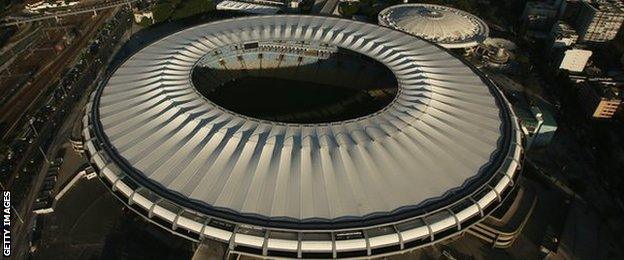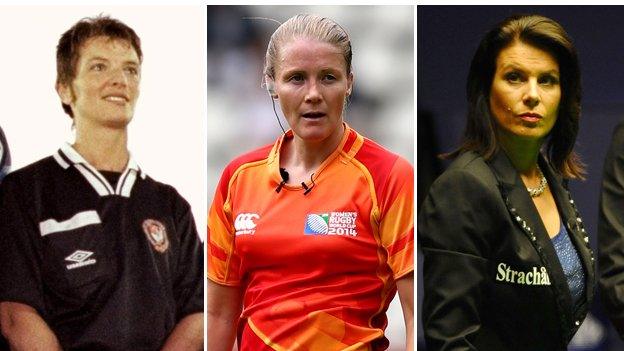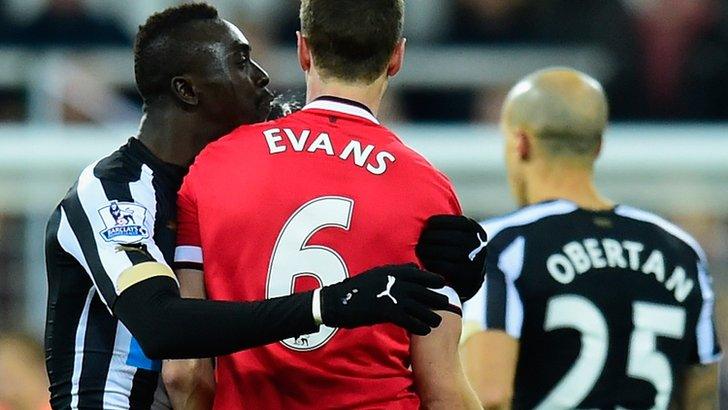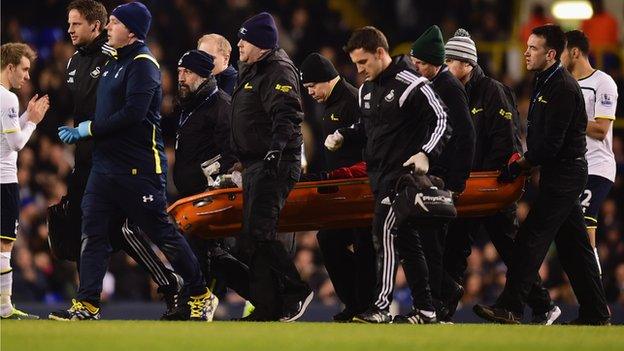Rio 2016: Deja vu as FA's Olympic football plan sparks new row
- Published
Highlights: Great Britain 1-0 Brazil
Great Britain took part in Olympic football competition for the first time in 40 years at London in 2012.
It looked like being a one-off appearance, to coincide with the Games being on home soil, but the Football Association wants to do it all again next year in Rio de Janeiro. Not everyone is happy.
Who wants GB teams at the 2016 Games?
The FA is the body empowered by the British Olympic Association to organise Great Britain teams for Olympic competition, so this latest push for men's and women's teams to compete in Rio is being driven by them.
It's believed Gareth Southgate, the England Under-21 manager, and Dan Ashworth, the FA's director of elite development, want their younger players to gain valuable tournament experience by competing in Rio.
The FA has already contacted its counterparts in Northern Ireland, Scotland and Wales to invite them to take part, but the idea has not been well received in Belfast, Glasgow and Cardiff.
Why are the other home nations against it?
The Football Association of Wales, along with the Scottish FA and Irish FA, refused to give their official support to Team GB in 2012, claiming they wanted to "protect the identity of each national association".
That did not stop five Welshmen earning selection in the men's squad, while two Scots made the women's. Both the FAW and SFA conceded they could not stop players joining up with the team if they wanted to.
GB squads for London 2012: |
|---|
Men: (English unless stated) Jack Butland, Jason Steele, Neil Taylor (Wales), Ryan Bertrand, Steven Caulker, Craig Dawson, James Tomkins, Micah Richards, Danny Rose, Aaron Ramsey (Wales), Joe Allen (Wales), Ryan Giggs (Wales), Tom Cleverley, Jack Cork, Scott Sinclair, Daniel Sturridge, Marvin Sordell, Craig Bellamy (Wales). |
Women: (English unless stated) Karen Bardsley, Rachel Brown, Alex Scott, Steph Houghton, Sophie Bradley, Casey Stoney, Claire Rafferty, Dunia Susi, Ifeoma Dieke (Scotland), Jill Scott, Fara Williams, Anita Asante), Kim Little (Scotland), Karen Carney, Ellen White, Kelly Smith, Rachel Yankey, Eniola Aluko, Rachel Williams. |
The general opposition to Team GB from Northern Ireland, Scotland and Wales has not changed in the intervening three years.
The SFA summed up the feelings of the home nations: "We have been consistently clear in our opposition to Team GB and, in particular, the threat it poses to our independent membership of Fifa and also our representation on the International Football Association Board."
Why is it such a contentious issue?
The fear is that the appearance of a British side at the Olympics may prompt calls for the dissolution of the individual home nations within Fifa, football's world governing body.
FAW chief worried over threat to Wales
There is also dismay among the home nations given the comments of Alex Horne, the former FA general secretary.
In 2012, he said: "We are proud to play as England and I know Scotland, Wales and Northern Ireland are proud to play as their own individual entities. We wouldn't want to do anything to risk that."
As independent members of Fifa, Scotland, England, Wales and Northern Ireland wield a lot of power, as well as compete in their own right.
The nations fear that competing under the Union Flag in Rio would provide ammunition to those who oppose their powers and could ultimately lead to calls for the creation of a single British association.
So will we see GB at the Maracana?
The home nations are "livid" with the English FA for raising an issue they believed had been consigned to history back in 2012.

The Maracana has already hosted World Cup Finals in 1950 and 2014
If opposition from other home nations is vehement enough, it could force Fifa into a corner. World football's governing body must ultimately decide whether or not to ratify both the men's and women's teams to play in Rio.
There's also the small matter of qualification.
For the men to make it, England would have to reach the semi-finals of this summer's European Under-21 Championship.
For the women, England would need to be one of the top three European teams at the World Cup in Canada, also being held this summer.
- Published4 March 2015

- Published5 March 2015

- Published5 March 2015

- Published20 June 2016

- Published7 June 2019
